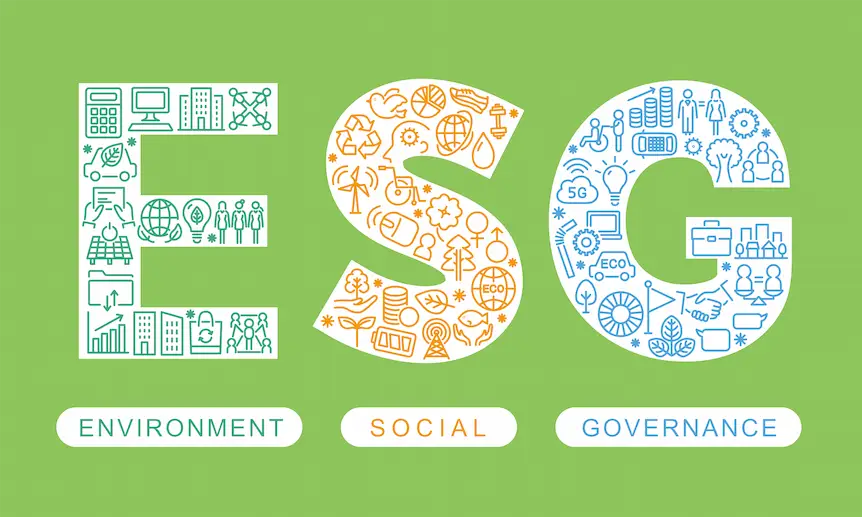ESG reporting – The status quo and scores in different parts of the world
 Share
Share
 Copy Url
Copy Url

Organizations and corporations that disclose environmental, social, and governance data publish what is known as ESG reports. An ESG report acts as an effective communication tool to show stakeholders your organization’s success in meeting ESG goals. Further, it portrays your business as one that is transparent and responsible, while catching the eye of investors looking to be part of organizations that take their ESG responsibilities seriously.
What do you get when you publish an ESG Report?
ESG Reporting differs in different countries across the world, based on the regulatory needs and frameworks used in the specific country. Unfortunately, the world has not yet agreed on one standard framework for ESG reporting which would have allowed for the normalization of standards and easier uptake of ESG activities and reporting, within large corporations.
We will briefly discuss the current status of ESG reporting in various large markets.
India
In India, new ESG reporting requirements have been introduced by the Securities and Exchange Board of India (SEBI) for the top 1,000 listed companies in the country. SEBI, as the regulatory authority, brought out a new format for companies to report on their ESG activities known as BRSR (Business Responsibility and Sustainability Reporting) which will be mandatory from FY 22-23. The BRSR was an evolution from the previous BRR and helps to raise the standards of ESG reporting in India, to global benchmarks.
This new format is based on the nine principles of the National Guidelines on Responsible Business Conduct (NGRBC), which are influenced by the UN Guiding Principles on Business and Human Rights, UN Sustainable Development Goals, the Paris Agreement, and the International Labour Organization Core Conventions.
All of this can be a little confusing, but essentially what needs to be kept in mind is that there is a very serious and real shift in the sands with regard to regulations and frameworks. For example, many large organizations across the country now have ESG targets as a part of the Key Results Areas (KRAs) of top management, which has a direct impact on their variable pay.
United Kingdom
In the UK, listed companies are mandated to provide information on greenhouse gas emissions, diversity, and human rights under the Companies Act 2006. Some companies are further required to report on how they apply the main principles of the Corporate Governance Code, 2012.
European Union
The European Commission issued a proposal for a Directive on Corporate Sustainability to deal with issues related to human rights and the environment across global value chains. This ensures that large and public-interest companies disclose material environmental, social and employee-related matters.
United States of America
The market regulator in the USA, the US Securities and Exchange Commission (SEC) regulation ensures that all listed companies disclose their environmental compliance expenses. In addition, the New York Stock Exchange (NYSE) has mandated that all listed companies disclose information on business conduct and ethics.
China
China has seven regulations that mandate the disclosure of data on sustainability. For example, the Environmental Information Disclosure Act, 2008 requires corporations to disclose environmental information. Further, voluntary disclosures by organizations to gain more grants and public support include information on annual resource utilization, pollution levels, waste generation, and disposal methods. The Shanghai Stock Exchange also requests large corporations to publish a separate report with information on the impact of their operations on the environment.
Scoring ESG performance and specifics
As ESG becomes an inescapable truth for corporations around the world, it is pertinent to briefly discuss ESG scoring and by whom, so that stakeholders can get a clearer understanding of the organization’s ESG performance.
Essentially, an ESG score reflects a company’s ability to meet its ESG commitments, performance, and exposure to risk. While different metrics are used across the world to assign an ESG score to companies, these are generally done by third-party providers, who set the criteria to score organizations.
Some of the third-party providers of ESG scores include:
- Bloomberg ESG Data Services
- Sustainalytics ESG Risk Ratings
- Dow Jones Sustainability Index Family
- RepRisk
Nowadays, the nearly complete permeability of ESG in every aspect of the modern corporation, its stakeholders, and indeed the general public is unavoidable. A small representation of this is that as we write this article in April 2022, there is a rise in a new form of advertising called ‘sustainability advertising’. It involves communication that focuses on promoting social, economic, and environmental benefits of products, services, and actions. The premise is that the average Indian investor/family cares about the environment and sustainable nature of the companies they are investing in.
The question, now, is when will a global framework for ESG reporting be implemented. It is a matter of “when” and not “if”. We hope that this blog has gone some way in helping you understand the current status quo vis-à-vis ESG reporting globally with an overview of ESG scores and the need for a single framework with benchmarking standards.
If you would like to discuss your ESG report, do feel free to reach out to Report Yak via our website here, and we would be glad to give you suggestions and discuss an appropriate approach to disclosing non-financial information for maximum impact!
Related Posts
-
How To Adopt BRSR Guidelines For Success
Oct 15, 2025Share
Copy Url
Simplifying ESG Disclosure for Better Impact
corporate reportingenvironmental and social initiatives
+6
Aug 28, 2025Share
Copy Url
GRI Sustainability Taxonomy: Learn How to Turn Data Into Advantage
corporate governancecorporate reporting
+11
Jul 1, 2025Share
Copy Url


